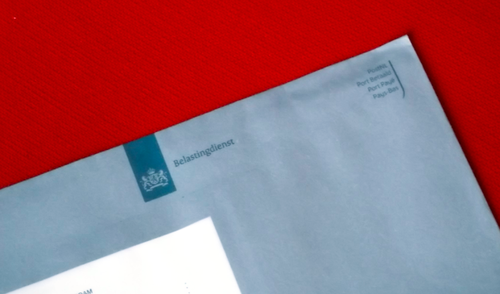“Taxing the king’s income doesn’t have to be complicated”

The royal family? Let them pay tax, says historian and republican Gerard Aalders. But the royals won’t want to lose out and that, he says, could have interesting consequences.
Most MPs think the king should pay income tax, as a vote on January 18 showed. But changes to the constitution take a lot of time and would give rise to debates that may harm the royal family’s image. What, for example, if the king is only willing to pay tax if his net income stays the same? It would mean doubling his allowance and that would be indefensible.
The royal tax exemptions are categorised under article 40 of the constitution which also includes an exemption from inheritance tax. An amendment to the constitution is tricky, because it requires a two-thirds majority in both the senate and the lower house of parliament. Until recently, such an amendment would have been unthinkable but things have changed since the last elections.
In 2015, the cabinet announced it would not tax the royal allowances for two reasons. Firstly, paying tax would be irreconcilable with the unique character of the office of king, it said. But why? The royal families of Britain, Belgium, Spain and Sweden are all taxpayers.
The second reason is that converting the royals’ current net income into a gross, taxable, amount is a complicated business.
Assumimg that Willem-Alexander, Máxima, Amalia and former queen Beatrix do not want to be out of pocket, here’s how state information service RVD explains the alleged complexity of the thing. “If tax would be imposed it would mean that a gross amount would have to be calculated for the royal remuneration in kind (such as the provision of palaces).
There will also be other provisions that would be taxable, such as the private use of cars.
That would necessitate an analysis of the taxability of these provisions and the extent to which they are deductible. It is not just a matter of taxable income but deductible costs. Based on tax regulations, not all costs are deductible.
Fiscal law has its own rules which stipulate that costs for clothing and personal grooming and the costs for maintaining a certain standard (such as having servants) are not deductible. But these are exactly the expenses considered functional for the maintenance of royal dignity.
All this, the RVD said, makes it “very difficult to put a gross value on the constitutional allowances.”
You’d think the tax office had handled more complex cases than this. But the RVD maintains it is simply too complex to even begin the process. The above quote, since removed from its website, makes abundantly clear what the king’s stance on the matter is.
What Rutte and the RVD fear most is that if the king were to pay tax, his current allowance would have to be roughly twice what he currently receives. Willem-Alexander’s gross allowance would go from €1 million to around €2 million, while Máxima would get over €800,000. Amalia would be allocated over €600,000 and Beatrix would receive a gross amount of over a €1 million.
Justifying the eye-watering allowances the royals are getting is difficult enough and the reputation of the Oranjes, already labelled greedy, would be damaged further if taxation of the royal family were to become law.
The RVD knows this better than anyone. Prime minister Mark Rutte said it earlier during a debate. “What would be the use?” he said. The message was: let sleeping dogs lie, if you don’t want a lot of noise.
Remarkably, the complexity cited by the RVD is limited to the king and his family, not the rest of the millions of taxpayers.
Even paying for “clothes and personal grooming” is a step too far for the royal family. Granted, it would be a bit of a disaster for Máxima, who hardly ever wear the the same thing twice. This royal dressing up is deemed to be a necessary part of the representative nature of her royal tasks. With a touch of the wand all these expenses are magically transferred to the taxpayers’ bill. These royal tasks, by the way, are also part of the constitution so Máxima can breathe easy.
The RVD’s moan about the non-deductibility of employing servants is also nonsense. This falls under article 41 of the constitution. “The king, considering the public interest, will organise his home accordingly.”
The utter vagueness of this article offers the king a lot of leeway. What it comes down to is that he can decide whatever he likes with regard to servants and whatever else he feels his court requires. It won’t cost him a penny, because the state pays it all. The “public interest” bit is just as vague and doesn’t present a problem either.
The question is whether or not this debate will further undermine the monarchy. As a republican I hope it will.
This column was published earlier in the NRC
Thank you for donating to DutchNews.nl.
We could not provide the Dutch News service, and keep it free of charge, without the generous support of our readers. Your donations allow us to report on issues you tell us matter, and provide you with a summary of the most important Dutch news each day.
Make a donation